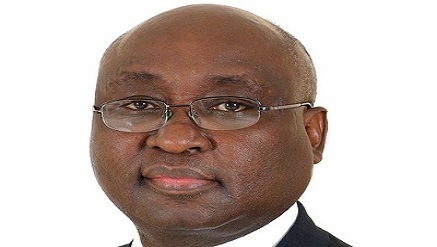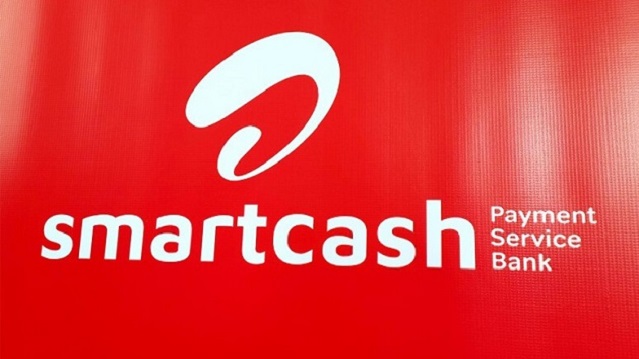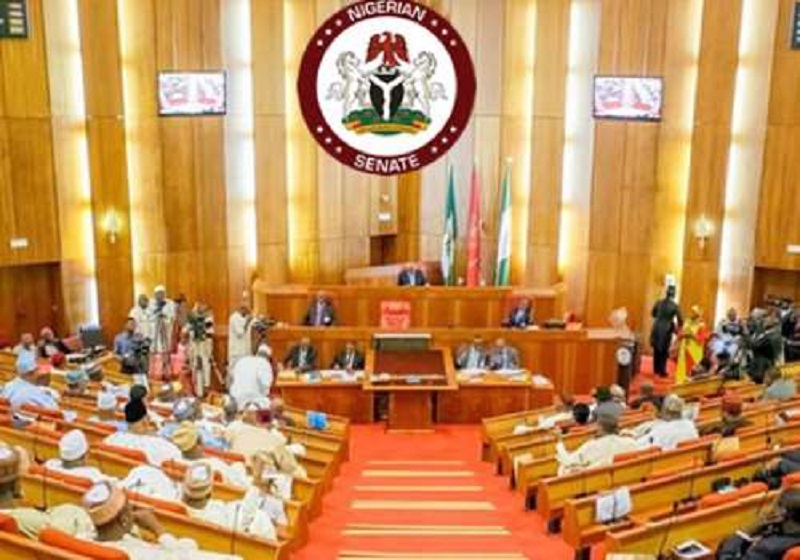E-Financial
AfDB Partners CSOs to Spur Development in Africa

A committee comprising the African Development Bank (AfDB) and Civil Society Organizations (CSOs) has been relaunched with the aim of fostering partnership between the two players in order to enhance development on the continent.
The committee, reintroduced at a two-day meeting between the Bank and CSOs will discuss a work plan, modalities of its implementation as well as an accountability structure.
“CSOs are our integral partners especially in the promotion of accountability, transparency and good governance. Accountability is key in terms of achieving our objective, and we could certainly do with an external reporting tool especially from CSOs,” Rakesh Nangia, Chair of the committee, said as he opened the meeting on January 14 at the Bank’s headquarters in Abidjan, Côte d’Ivoire.
Addressing the participants, who included regional civil society heads and representatives of key sectors within the Bank, he reiterated the importance of strengthening engagement with CSOs. “The Bank recognizes and values the expertise and contributions of CSOs, which are essential in achieving sustainable development in Africa,” said Nangia, who is also the Evaluator General of the Bank’s Independent Development Evaluation department (IDEV).
His remarks were echoed by Mamadou Goita, Chair of the Civil Society Coalition, who described the role of civil society as crucial in helping the Bank to frame projects that would be more relevant to communities.
“We need to be involved from the first stage of designing a project because we know the context of our various communities. We can then help follow through to the implementation, monitoring and evaluation stages,” Goita said.
He cited the recent Ebola response saying civil society organizations would have been approached to help in framing the nature of the Bank’s assistance.
“We are the ones on the ground and we know the specific needs on the ground; if it is support in getting skilled care, drugs, or even building new hospitals, among others.” In August last year, the Bank approved a US $60-million grant to help strengthen West Africa’s public health systems in a bid to address the Ebola crisis.
The issue of engaging with CSOs from fragile states came into focus with recommendations of sustainable funding and long-term institutional development of the organizations, including capacity building.
However there were calls for a range of CSOs (international and local) in fragile states to work together in order to strengthen delivery of services. “International NGOs may not be able to intervene on the ground without involvement of grassroots NGOs. Both need to collaborate and ensure results,” noted Baboucarr Sarr, the Lead Regional Fragility Coordinator in the Bank’s Transition Support Department. This, he said, was a key lesson learnt while working in the Horn of Africa.
The AfDB-CSOs partnership is guided by the Framework for Enhanced Engagement with Civil Society Organisations, which is in line with the Bank’s Ten Year Strategy (2013-2022).
E-Financial
GCR Affirms Afreximbank’s International Scale Ratings of A, A2

GCR Ratings (GCR) has affirmed African Export-Import Bank (Afreximbank) international scale long and short-term issuer ratings of A and A2 respectively. The outlook was revised to “Stable” from “Rating Watch Evolving”.

GCR has also affirmed the international scale long term programme rating on the $5 billion Global Medium Term Note (GMTN) Programme of A.
The improved rating reflects GCR’s assessment of a “robust counter-cyclical mandate, underpinned by a strong track record and ongoing preferential creditor treatment (PCT) from shareholders.”
South Africa became the latest country to affirm the Bank’s Establishment Treaty and Preferred Creditor Status when it recently signed the Instrument of Accession to become a full sovereign member of the Bank.
The report continued: “The Bank’s solid capitalisation and diversified funding profile provide significant buffers against emerging credit risks.” The report also acknowledged the Bank’s diverse shareholding base.
The outlook change from “Rating Watch Evolving” to “Stable”, according to GCR, indicates that there is immaterial downside risk related to sovereign debt restructurings.
Commenting on the Rating action, Chandi Mwenebungu, Managing Director and Group Treasurer, Treasury and Markets at Afreximbank said: “We are delighted that GCR has affirmed its credit rating on the Bank and resolved the outlook to ‘stable’, particularly in the light of recent positive credit developments.
“We continue to assert that the Bank’s preferred creditor treatment is enshrined in the Bank’s Establishment Agreement, ratified by all member states. It is not a matter of opinion or convention; it is fact”.
Mwenebungu continued, “It is also pleasing to note that GCR acknowledges the Afreximbank’s strong liquidity and capitalisation, and resilient risk profile. This is testament to the Bank’s financial and operational strength and that it has been able to demonstrate firm resolve in the face of continued macro-economic pressures and a challenging environment.”
E-Financial
SmartCash Launches ‘No Be Cho Cho Cho’ Campaign to Boost Digital Banking in Nigeria

Smartcash Payment Service Bank (PSB), the Airtel-owned digital financial services platform, has unveiled a nationwide marketing campaign titled “No Be Cho Cho Cho”, signalling a strategic shift toward proof-led messaging in Nigeria’s fast-evolving fintech sector.

Launched at a media event in Lagos, the campaign represents a new chapter for Smartcash, following its earlier “Money Matter Na Sense” positioning, reflecting the company’s rapid growth and increasing role in Nigeria’s digital financial ecosystem. The platform now serves nearly three million active wallets, with users spanning students, traders, households and small businesses across the country.
The phrase “Cho Cho Cho,” a popular expression in Nigerian street parlance meaning “talking without action,” is used deliberately by the company to challenge the hype-driven marketing culture that has often characterised the fintech sector. Instead, Smartcash says the campaign will focus on demonstrable performance and measurable value for customers, which means “Smartcash dey show workings”.
The initiative centres on the three pillars of reliability, transparency and demonstrable service delivery and addresses what the company describes as a widening trust gap in Nigeria’s digital payments market.
Speaking at the launch, Ayotunde Kuponiyi, Managing Director and Chief Executive Officer of Smartcash PSB, outlined the strategic philosophy behind the campaign, linking the company’s mission to broader global and national economic priorities.
“Financial inclusion is a critical pillar of the United Nations Sustainable Development Goals, and with the launch of ‘No Be Cho Cho Cho’, we are proving our commitment to this vision,” Kuponiyi said.
“We have built an accessible banking service that breaks barriers for everyone, from corporate executives to the previously unbanked, pulling them from the sidelines to centre stage. Through our flagship zero-charge service, we promise no fees on P2P transfers or bill payments. Furthermore, our savings account offers 15 percent per annum compounded interest, paid daily without penalties. Unlike conventional banks, we charge you nothing, ensuring your money truly works for you.”
Smartcash’s zero-charge model, which eliminates fees on transfers and bill payments, has become one of the platform’s defining features., alongside instant transfers and everyday payments for utilities, airtime, data and cable TV.
Kuponiyi noted that the campaign reflects a broader philosophy of accountability in digital finance.
“Nigerians have experienced inconsistency and unclear charges across various platforms in the past,” he said. “With No Be Cho Cho Cho, we are saying clearly: don’t just listen to what we say; experience the proof.”
Smartcash operates as a Payment Service Bank licensed by the Central Bank of Nigeria and is wholly owned by Airtel Nigeria, a part of the Airtel Africa Group, which operates across 14 countries. This backbone allows the platform to serve customers through both smartphone applications and USSD channels, enabling access for users without smartphones or traditional bank accounts.
Beyond consumer banking, the platform is also expanding its footprint through a nationwide network of agents that facilitate transactions and financial services in underserved communities.
Providing further insight into the bank’s financial architecture and long-term roadmap, Kuponiyi, emphasised that the campaign reflects the strength of the institution’s operational foundation.
“At Smartcash, we have matched our ambitious growth targets with disciplined investment in secure, high-volume processing capabilities. The No Be Cho Cho Cho initiative is a testament to our financial health and our unwavering focus on driving financial inclusion through sustainable incentives that provide real value to the Nigerian economy,” he said.
As part of the rollout, the No Be Cho Cho Cho” campaign will run nationwide across television, radio, outdoor advertising and digital platforms, targeting young, mobile-first consumers while also reaching traders and small businesses through agent networks and USSD channels.
For Smartcash, the campaign marks more than a marketing refresh; it signals an attempt to redefine how financial technology companies communicate with Nigerian consumers in an increasingly competitive sector.
As Kuponiyi concluded at the launch: “The evidence is plenty. Nigerians can see it for themselves.”
E-Financial
Senate Targets Fintech Overreach, Vows Ponzi Crackdown After ₦1.3trn CBEX Scam

Nigerian Senate has launched a public hearing to amend the Banks and Other Financial Institutions Act (BOFIA) 2020 while investigating rampant ponzi schemes, spotlighting the Crypto Bridge Exchange (CBEX) collapse that defrauded 1,200 victims of ₦1.3 trillion.

Senate President Godswill Akpabio, represented by Senate Leader Opeyemi Bamidele, opened Tuesday’s session jointly organised by committees on Banking, ICT/Cybersecurity, Capital Market, and Anti-Corruption. The bill (SB959) aims to bolster Central Bank of Nigeria (CBN) oversight of fintechs and systemically important digital institutions without creating a duplicate regulator.
Akpabio stressed: “Enhanced supervision is not a constraint on growth; it is a safeguard for sustainable growth,” rejecting a standalone fintech commission to avoid fragmented oversight. Crypto licensing falls under SEC, but transaction stability remains CBN’s domain.
Senate Banking Committee Chairman Mukhail Abiru highlighted a national registry for transparency and risk-based fintech supervision, backed by CBN Deputy Governor Philip Ikeazor, who noted some fintechs rival mid-sized banks in volume.
The probe targets regulatory gaps exposed by CBEX’s unrealistic returns amid economic hardship. EFCC’s Dein Whyte reported asset seizures from operators, with forfeiture proceedings underway.
CBN’s Orekia Opemi-Yusuf warned separate regulators could stunt Nigeria’s expanding fintech sector, while FCCPC’s Ondaje Ijagwu urged clear lines between prudential rules and consumer protection. The reforms seek to restore trust in a digital economy battered by fraud.

 E-Financial2 days ago
E-Financial2 days agoNRS Targets N40trillion in Tax, Royalty Revenue in 2026

 E-Financial2 days ago
E-Financial2 days agoSEC Revokes Registration of Kensington Agro Trading Limited

 General News2 days ago
General News2 days agoPurple Woman 3.0 Is Back, to Empower Women in Tech this IWD 2026

 News2 days ago
News2 days agoEFCC Arraigns Two FSDH Bank Officials Over $307k, €50k Fraud

 Telecom2 days ago
Telecom2 days agoKonga Launches ‘Berekete Sales’ with Up to 50% Discounts Across Major Categories

 E-Business2 days ago
E-Business2 days agoNDPC, 60 DPAs Collaborate on Enforcing Privacy Rights in the Use of Al

 General News2 days ago
General News2 days agoNCDC Raises Alarm over Lassa Fever Ravaging 18 States in Nigeria

 E-Financial2 days ago
E-Financial2 days agoNigeria’s Net Reserves Surge 50% to $34.8bn in 2025 – CBN Governor

























